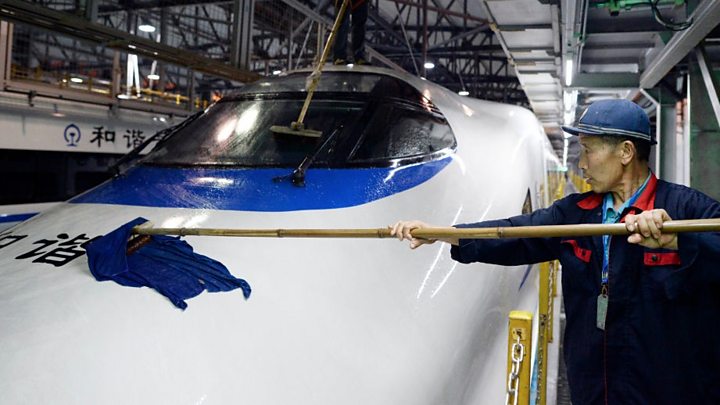- Italy is to be the first major European economy to join China’s Belt and Road Initiative
- The move exacerbates tensions between Italy and its neighbors.
- France wants a coordinated, united approach to China.
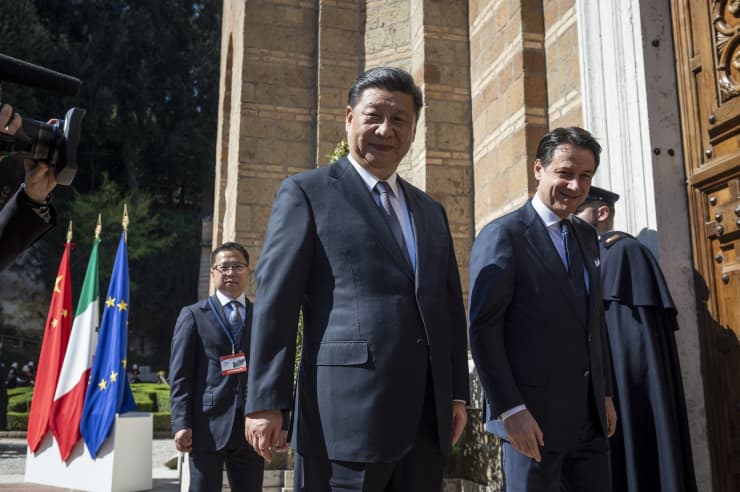
Italian Premier Giuseppe Conte meets Chinese dictator Xi Jinping before to sign trade agreements on Belt and Road Initiative, on March 23, 2019 in Rome, Italy.
Italy’s decision to be the first major European economy to join China’s massive investment and infrastructure project, the Belt and Road Initiative (BRI), can only exacerbate tensions between Italy and its neighbors.
On Saturday, Xi Jinping and the Italian government signed a non-binding agreement for Italy to join China’s trade route and inked a total of 29 deals worth 2.5 billion euros ($2.8 billion) across an array of sectors. Italy hopes the project will boost its sluggish economy but the deal raised more than just eyebrows in Europe and the U.S. with officials criticizing the move.
The BRI is something of a 21st century Silk Road with the sea and land route stretching from Asia, the Middle East, Africa and now into Europe — with Italy being the first Group of Seven (G-7) country to sign up to the global infrastructure and development project.
China sees the BRI as a way to export more of its goods to lucrative markets; its critics see the initiative as a vanity project that increases indebtedness among its participating countries.
The BRI gives Chinese companies unfettered access to other markets and economies, but that its own is still largely closed to foreign investment.
At the heart of concerns is that the BRI is seen as a way for China to spread its geopolitical influence — an acute concern for a Europe increasingly uncertain of its place in the world.
As such, Italy’s latest move has been seen as undermining Europe’s ability to compete with China’s economic might.
At the heart of concerns is that the BRI is seen as a way for China to spread its geopolitical influence — an acute concern for a Europe increasingly uncertain of its place in the world.
As such, Italy’s latest move has been seen as undermining Europe’s ability to compete with China’s economic might.
Italy’s bilateral deal with China also came a day after French President Emmanuel Macron called for a coordinated European approach to the superpower.
Italy’s anti-establishment coalition government has already clashed with Brussels over immigration and its spending plans.
Italy’s anti-establishment coalition government has already clashed with Brussels over immigration and its spending plans.
Its deal with China is likely to be another source of tension.
“It’s clear that this does undermine Europe’s and the West’s ability to stand up to China,” Federico Santi, senior Europe analyst at Eurasia Group, told CNBC Tuesday.
“It’s clear that this does undermine Europe’s and the West’s ability to stand up to China,” Federico Santi, senior Europe analyst at Eurasia Group, told CNBC Tuesday.
“This will be another source of friction between Italy and Europe which, ultimately, will be to the detriment of Italy itself,” he added, although he noted that the terms of the agreement between Italy and China remained to be seen.
Italy and China have played down concerns.
Italy and China have played down concerns.
Italy’s Deputy Prime Minister Luigi Di Maio told CNBC that the accord was “nothing to worry about” and Xi tried to assuage concerns in Europe too, saying on Tuesday during a visit to France that “cooperation is bigger than competition between China and Europe.”
Other EU leaders like French President Emmanuel Macron are keen for the EU to have a tougher approach to China and stress the need for reciprocal commercial ties.
Other EU leaders like French President Emmanuel Macron are keen for the EU to have a tougher approach to China and stress the need for reciprocal commercial ties.
On Tuesday, Macron said while he wants the EU to deepen its ties with China, there must be a united European front when it comes to the superpower.
To emphasize this point, he invited German Chancellor Angela Merkel and European Commission President Jean-Claude Juncker for talks with Xi in Paris on Tuesday.
To emphasize this point, he invited German Chancellor Angela Merkel and European Commission President Jean-Claude Juncker for talks with Xi in Paris on Tuesday.
There, Macron urged China to “respect the unity of the European Union and the values it carries in the world.”
Juncker stressed that European companies should find “the same degree of openness in the China market as Chinese ones find in Europe.”
Merkel, for her part, said that Europeans wanted to take part in the Belt and Road Initiative but that “must lead to a certain reciprocity, and we are still wrangling over that bit.”
As Macron said in Brussels last week, “the time of European naïveté is ended” as he called for the EU. For many years we had an uncoordinated approach and China took advantage of our divisions.”
With Italy pursuing its own deal with China regardless of its neighbors’ concerns, China could be able to make the most of those divisions again.
Merkel, for her part, said that Europeans wanted to take part in the Belt and Road Initiative but that “must lead to a certain reciprocity, and we are still wrangling over that bit.”
As Macron said in Brussels last week, “the time of European naïveté is ended” as he called for the EU. For many years we had an uncoordinated approach and China took advantage of our divisions.”
With Italy pursuing its own deal with China regardless of its neighbors’ concerns, China could be able to make the most of those divisions again.
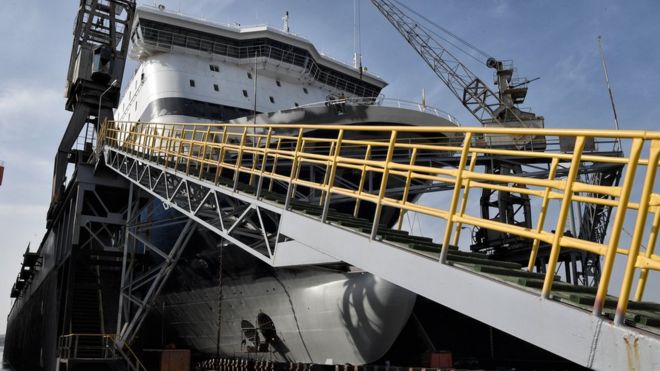
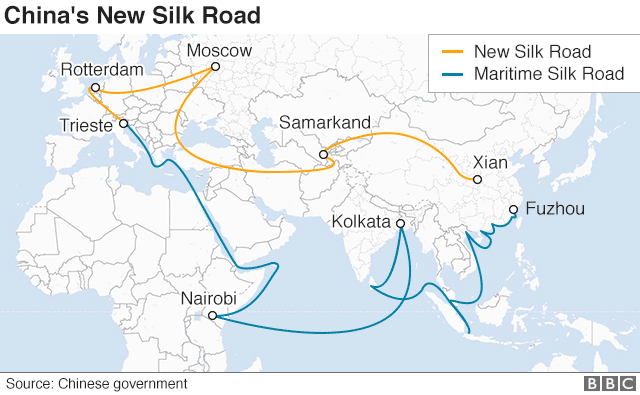
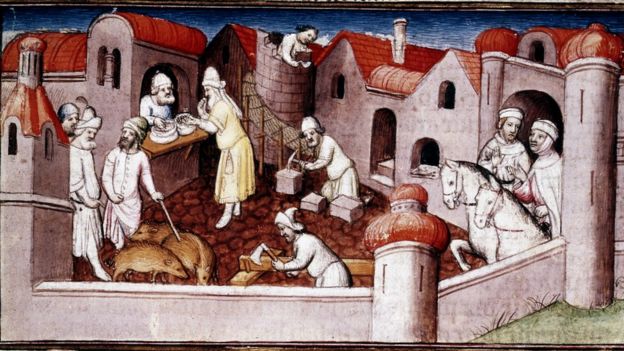 Explorer Marco Polo's travels along the Silk Road were immortalised in the "Book of Marvels"
Explorer Marco Polo's travels along the Silk Road were immortalised in the "Book of Marvels"
